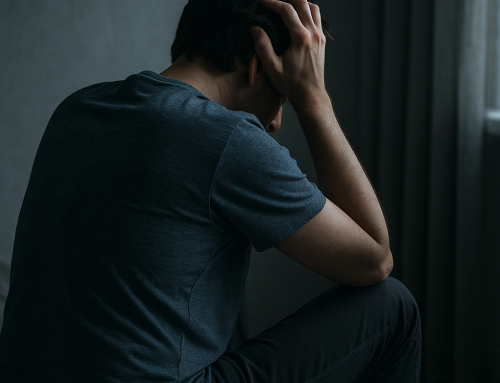Anxiety disorder is a psychological condition that can arise from the complex interaction of various factors. Psychological causes include various internal processes and factors that play a role in the development of anxiety disorders. However, because each individual is unique, these causes can vary from person to person. Some of the causes of anxiety disorders include:
Genetic Factors: Genetic predisposition within the family can increase the risk of anxiety disorders. If th

ere is anxiety disorder among first-degree family members (parents, siblings), the individual’s risk may increase.
Brain Chemistry: Chemical imbalances in the brain, particularly changes in neurotransmitters such as serotonin and norepinephrine, can contribute to the development of anxiety disorders. These chemical changes may result in abnormalities in nerve transmission.
Individual Experiences: Traumatic events, traumas, losses, or challenging life experiences can increase the likelihood of developing anxiety disorders. Negative experiences, especially during childhood, can lead to anxiety problems in later years.
Personality Structure: Certain personality traits, especially perfectionism, low self-esteem, and shyness, can increase the risk of anxiety disorders.
Stress and Life Events: Intense stress, prolonged pressure, or specific life events can contribute to the emergence of anxiety disorders. Events such as job changes, family problems, and health issues can be among these stressors.
Cognitive Factors: Anxiety disorders are often associated with negative thought patterns and anxiety-inducing thoughts. An individual’s cognitive processes can influence their anxiety levels.
Social Factors: Societal pressures, social expectations, and environmental factors can play a role in the development of anxiety disorders. Conditions such as social phobia, in particular, can increase anxiety related to social interactions.
In the treatment process, these psychological factors are generally taken into account, and therapeutic approaches help individuals cope with anxiety and develop healthier thought and behavior patterns. However, it should be remembered that the treatment plan is personalized according to the individual’s specific situation.




